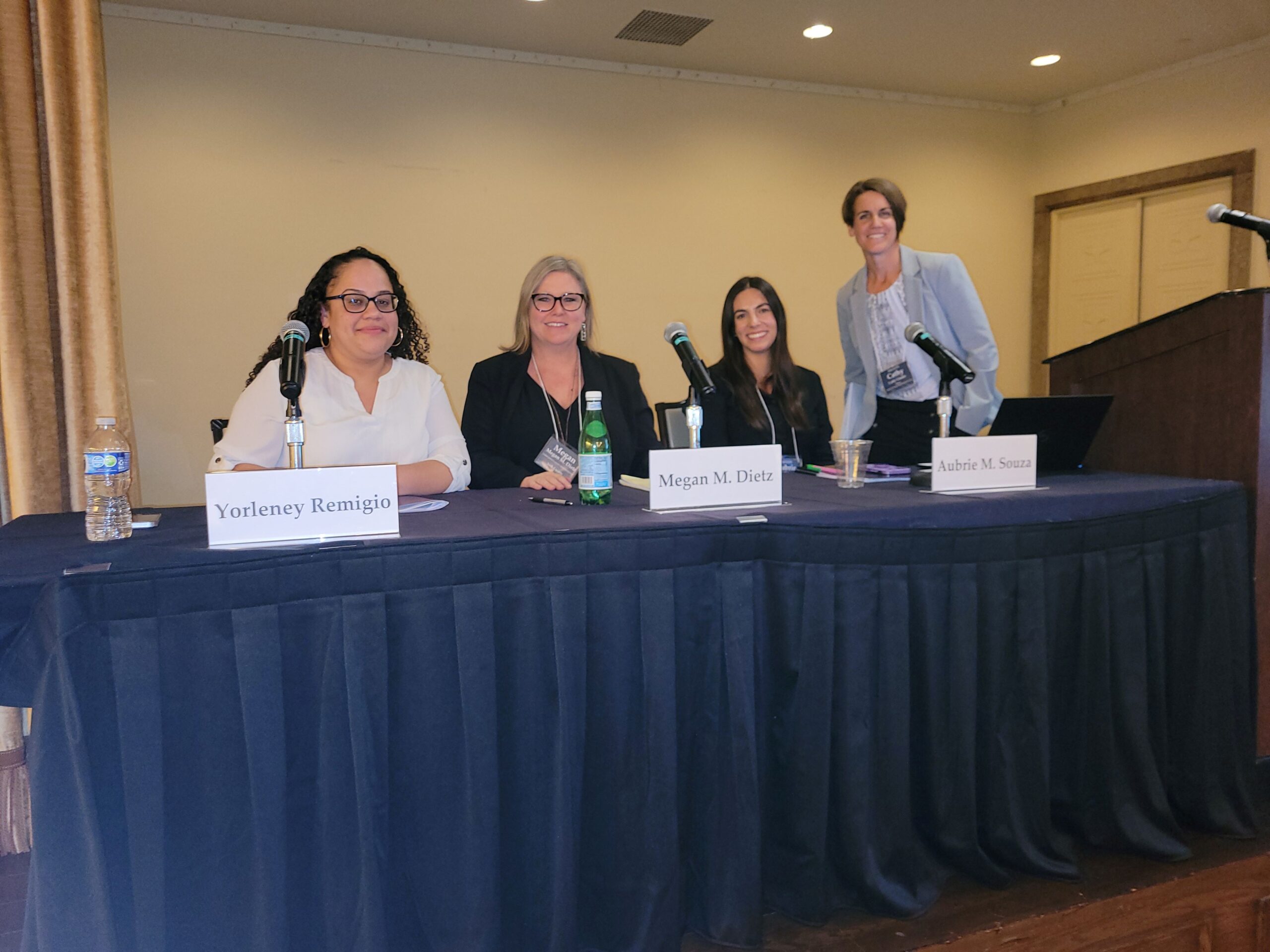“An unrepresented person walks into a courthouse” might sound like the beginning of a joke, but in real life it’s a recipe for intimidation, confusion and stress. That’s where court-based help centers can make a difference, according to a report produced by students in our Access to Justice Clinic (“Justice for All: The Current Success of Self-Help Centers in Pennsylvania Courts and Recommendations for Growth)”. So we were excited to be invited, this month, to present our findings to the Pennsylvania Association of Court Management, PA’s organization of court professionals, at their Pittsburgh meeting.
As the report explains, self-help centers offer a comfortable environment where litigants can get assistance in understanding court procedures, filling out forms, and navigating other mystifying aspects of the judicial process. The centers benefit not only the public, but also judges and court staff, whose work becomes easier when people are able to follow the rules for being heard. And PA has some successful centers — though there are also still many counties that do not have them. (By contrast, some states have help centers in most or all of their courthouses.)
Cathy Ginder, L ’25, one of the authors of our report (at the right in the photo), planned the Pittsburgh session, invited the presenters, and moderated the discussion. Megan Dietz and Yorleny Remigio, stars of the York County Court Self-Help and Law Resource Center, explained how their center was created and why litigants and judges so strongly support it. Aubrie Souza, Court Management Consultant for the National Center for State Courts, generously traveled from Boston to add a national perspective and to offer her organization’s assistance to PA courts. (NCSC recently released its own report on self-help centers around the country.)
We hope our presentation will lead more PA counties to consider creating help centers. And we’re pleased that our clinic now has a connection to PACM, which is on the front lines of making justice more accessible to Pennsylvanians.

